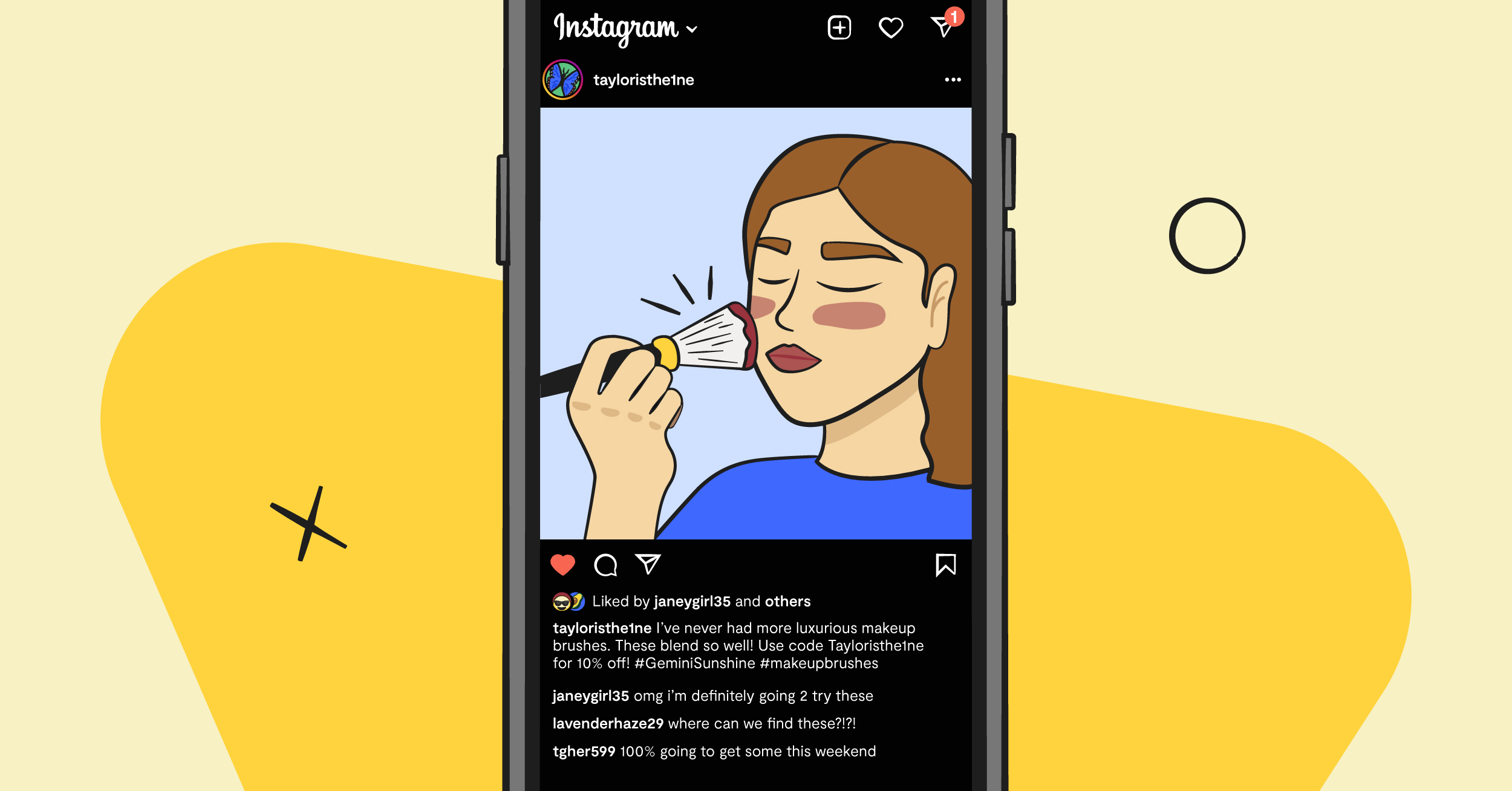Social media influencers significantly impact consumer behavior and brand perception. Their recommendations often drive purchasing decisions.
Social media influencers have become pivotal in modern marketing strategies. They connect brands with large, engaged audiences, creating a direct line of influence. By sharing authentic content, influencers build trust and credibility with their followers. Brands leverage this trust to boost awareness and sales.
Influencers’ reach extends across various platforms, including Instagram, YouTube, and TikTok, making them versatile marketing tools. Their ability to engage with niche markets ensures targeted and effective campaigns. As a result, businesses increasingly invest in influencer partnerships to stay competitive. The symbiotic relationship between influencers and brands continues to shape the digital marketing landscape.
The Rise Of Social Media Influencers
Social media influencers have changed how we see online content. They shape trends and opinions. They use their platforms to reach millions. Their influence spans various industries, from fashion to tech.
Early Beginnings
Social media influencers started with blogs and personal websites. Bloggers shared their thoughts and lives. People loved their authentic voices. With time, platforms like MySpace and Friendster came up.
Influencers used these new platforms to reach more people. They posted about daily life, interests, and hobbies. Their followers grew as they shared more personal stories.
Key Platforms
Today, several platforms are key for influencers. Each has its unique audience and style. Here are the most important ones:
| Platform | Main Features |
|---|---|
| Photos, Stories, Reels | |
| YouTube | Videos, Vlogs, Tutorials |
| TikTok | Short Videos, Challenges |
| Short Texts, Trending Topics |
Influencers on Instagram share beautiful photos and short videos. They use Stories and Reels to engage followers. YouTube influencers make long videos. These can be vlogs, tutorials, or reviews.
TikTok is for short, fun videos. Influencers create challenges and trends. Twitter influencers share thoughts in short texts. They discuss trending topics and news.
Types Of Social Media Influencers
Social media influencers have transformed marketing strategies. They come in various types, each with unique characteristics and impacts. Understanding these types helps brands choose the right influencer for their campaigns.
Mega Influencers
Mega influencers are social media stars with a massive following. They often have over one million followers. These influencers are usually celebrities or well-known public figures.
- High Reach: Their large audience provides extensive brand exposure.
- Professional Approach: They often have teams managing their accounts.
- High Cost: Due to their popularity, they charge premium rates.
Brands often use mega influencers for large-scale awareness campaigns. Their posts can go viral quickly, reaching millions in a short time.
Micro Influencers
Micro influencers have smaller, but highly engaged followings. They typically have between 10,000 to 100,000 followers. They are often considered experts in their niche.
- High Engagement: Their followers are more likely to interact with posts.
- Authenticity: They build genuine relationships with their audience.
- Cost-Effective: They are usually more affordable than mega influencers.
Micro influencers are ideal for targeted campaigns. They can drive meaningful interactions and conversions within specific communities.
| Type | Followers | Key Benefits | Cost |
|---|---|---|---|
| Mega Influencers | 1M+ | High Reach, Professional Approach | High |
| Micro Influencers | 10K-100K | High Engagement, Authenticity | Cost-Effective |
Impact On Consumer Behavior
Social media influencers have a significant impact on how people behave. They shape the choices and preferences of their followers. This influence extends to how consumers make buying decisions.
Trust And Credibility
Influencers build trust and credibility with their audience. They share honest reviews and personal stories. Followers see them as friends, not celebrities. This trust makes followers more likely to buy recommended products.
Engagement also boosts credibility. Influencers reply to comments and messages. This interaction strengthens the bond with their audience. People trust influencers more than traditional ads.
Purchase Decisions
Social media influencers significantly affect purchase decisions. They showcase products in real-life scenarios. Followers see how products fit into their daily lives. This makes the products more appealing.
Discount codes and special offers also drive purchases. Influencers often share exclusive deals with their followers. These offers create a sense of urgency. People are more likely to buy quickly.
Here is a table that shows the impact of influencers on purchase decisions:
| Influencer Action | Consumer Response |
|---|---|
| Product Review | High trust in product quality |
| Discount Code | Increased likelihood of purchase |
| Personal Story | Emotional connection to product |
Influencers And Brand Collaborations
In the digital age, social media influencers have become vital for brands. They help in reaching wider audiences and building trust. Influencers use their popularity to promote products and services. This collaboration has proven to be mutually beneficial.
Sponsorships
Sponsorships are a common form of collaboration. Brands pay influencers to promote their products. This can be through posts, stories, or even live sessions. The content is often authentic and engaging. It helps in building a positive image for the brand.
- Brands gain more visibility and reach.
- Influencers earn revenue and receive free products.
- Followers get honest reviews and recommendations.
Affiliate Marketing
Affiliate marketing is another popular method. Influencers promote products and earn a commission on sales. They use unique links or discount codes. This method is performance-based. It ensures that both parties benefit from the collaboration.
- Influencers create content featuring the product.
- Followers use the affiliate link to purchase.
- Influencers earn a percentage of the sales.
This approach is effective for tracking sales and engagement. It helps in measuring the success of the campaign. Brands can easily see which influencers drive the most sales.
Challenges Faced By Influencers
Social media influencers have transformed the digital landscape. They shape trends and influence consumer behavior. Yet, their journey is not without challenges. Many influencers face hurdles daily that can impact their mental health and career longevity. Below, we explore some of these challenges.
Content Fatigue
Creating fresh content daily is exhausting. Influencers often experience content fatigue. They need to post engaging updates constantly. This demand can lead to burnout. Influencers must stay relevant and interesting. The pressure can be overwhelming.
Some key points include:
- High demand for new content
- Need for creativity and originality
- Pressure to maintain engagement rates
Keeping up with trends is tiring. Influencers must innovate to stand out. This constant chase can drain their energy. They need breaks but fear losing followers.
Privacy Issues
Influencers share much of their life online. This can lead to privacy issues. Their personal life becomes public. They face scrutiny from followers and media.
Some concerns are:
- Online harassment and stalking
- Family and friends’ privacy invasion
- Difficulty in maintaining personal boundaries
Influencers often struggle to keep their private life separate. Their every move is watched. This constant surveillance can be stressful. Balancing privacy and openness is a tough act.

Credit: www.statista.com
Regulation And Ethical Concerns
Social media influencers have a huge impact on their followers. They shape opinions, trends, and buying decisions. This power brings about regulation and ethical concerns. It’s crucial to ensure transparency and honesty in their content.
Disclosure Requirements
Influencers must follow disclosure requirements to maintain transparency. They need to disclose paid partnerships and sponsored content. This helps their followers know if a post is an advertisement.
Here are some key points to consider:
- Use hashtags like #ad or #sponsored.
- Clearly state the relationship with the brand.
- Avoid hidden or misleading disclosures.
Proper disclosure builds trust with the audience. It also complies with legal guidelines.
Authenticity
Authenticity is vital for social media influencers. Followers expect real and honest opinions. Fake reviews or exaggerated claims can damage an influencer’s reputation.
To maintain authenticity, influencers should:
- Only promote products they truly believe in.
- Share personal experiences and honest feedback.
- Avoid over-editing photos and videos.
Authentic content resonates better with the audience. It fosters genuine connections and loyalty.
Future Trends In Influencer Marketing
The world of influencer marketing is evolving rapidly. Brands and influencers must adapt to new trends. Understanding these trends helps in staying ahead in the game.
Virtual Influencers
Virtual influencers are computer-generated characters. They act like real-life influencers. These digital personas are gaining popularity. They offer unique advantages over human influencers.
- Consistency: Virtual influencers can maintain a consistent image.
- Control: Brands have full control over their actions and behaviors.
- Cost-effective: They can be more affordable in the long run.
Creating a virtual influencer involves using advanced technologies. These include AI and CGI. Brands like Lil Miquela have shown great success with this trend.
Niche Markets
Niche markets are becoming increasingly important. Influencers who focus on specific topics can have a strong impact. They engage deeply with their audience.
Some examples of niche markets include:
- Eco-friendly products
- Vegan lifestyles
- Tech gadgets
These influencers build trust within their communities. They offer authentic and specialized content. This leads to higher engagement and conversion rates.
| Niche Market | Examples |
|---|---|
| Eco-friendly products | Reusable bags, solar panels |
| Vegan lifestyles | Vegan recipes, cruelty-free brands |
| Tech gadgets | Smartphones, wearable tech |
Brands targeting niche markets see better ROI. They find influencers with genuine followers. This leads to more meaningful interactions.

Credit: youngentertainmentmag.com
Case Studies Of Successful Influencers
The influence of social media influencers has grown significantly. They shape trends, opinions, and purchasing decisions. Here, we explore case studies of successful influencers in different sectors.
Fashion Industry
Chiara Ferragni, also known as The Blonde Salad, is a prime example. She began her journey as a fashion blogger. Today, she is one of the most influential figures in the fashion world. Chiara has collaborated with major brands like Louis Vuitton and Chanel. Her Instagram boasts over 20 million followers.
- Started as a fashion blogger
- Collaborated with top luxury brands
- Over 20 million followers on Instagram
Chiara’s success lies in her authentic content. She shares personal stories, fashion tips, and behind-the-scenes glimpses. This approach builds trust and engagement with her audience.
Tech Sector
Marques Brownlee, also known as MKBHD, is a leading tech influencer. He started on YouTube in 2008, reviewing gadgets. Today, Marques has over 15 million subscribers. He provides detailed reviews and tech insights.
- Began YouTube channel in 2008
- Focuses on gadget reviews and tech insights
- Over 15 million subscribers
Brands like Apple and Google often collaborate with him. Marques’s success is due to his expertise and quality content. His reviews are comprehensive, honest, and engaging.

Credit: csunshinetoday.csun.edu
Conclusion
Social media influencers shape opinions and drive trends. Their impact on consumer behavior is undeniable. Brands leverage their reach to boost visibility. Authentic connections with audiences enhance trust and loyalty. As digital landscapes evolve, influencers will continue to play a crucial role.
Embracing this dynamic can offer substantial growth opportunities.

